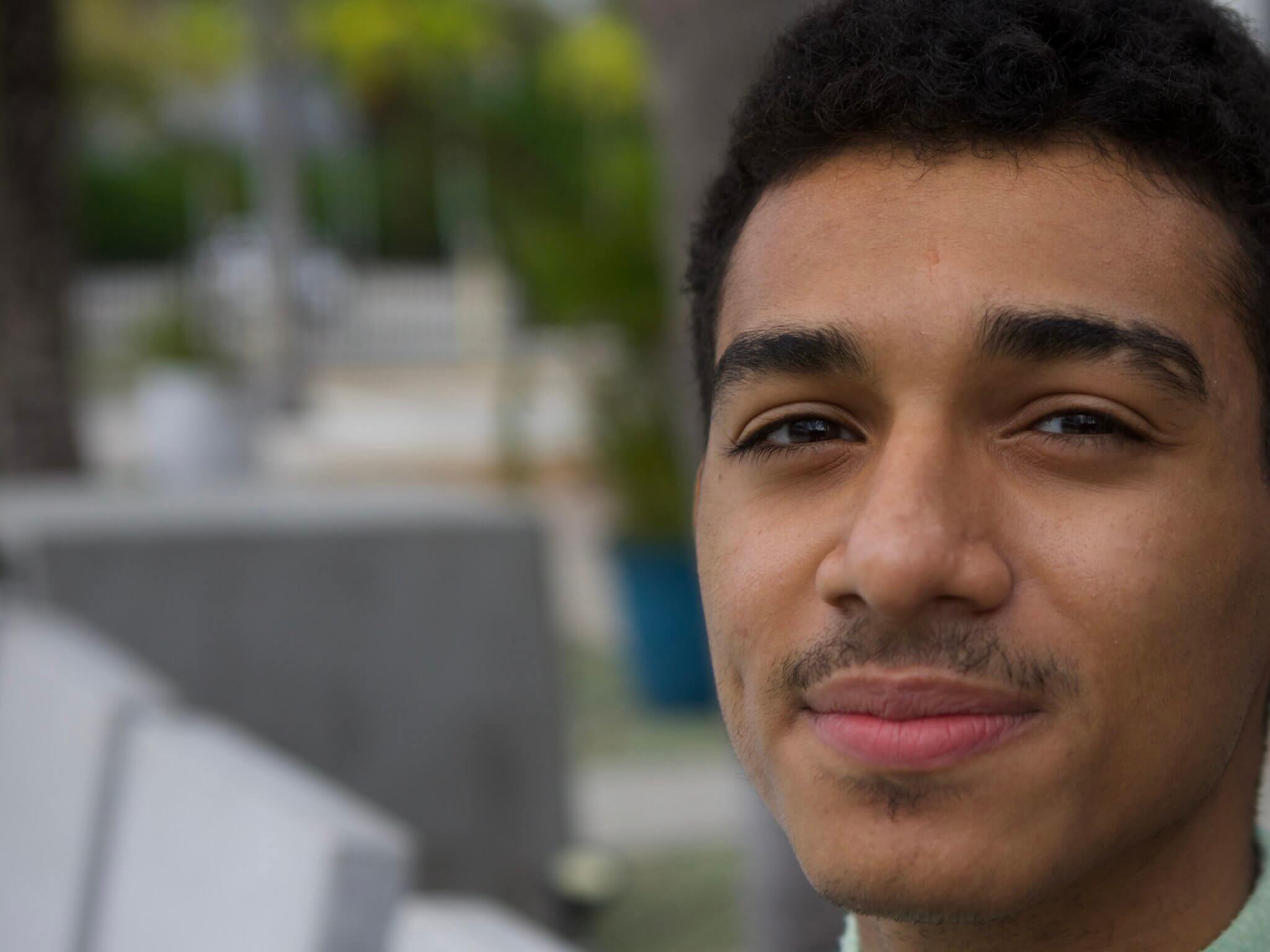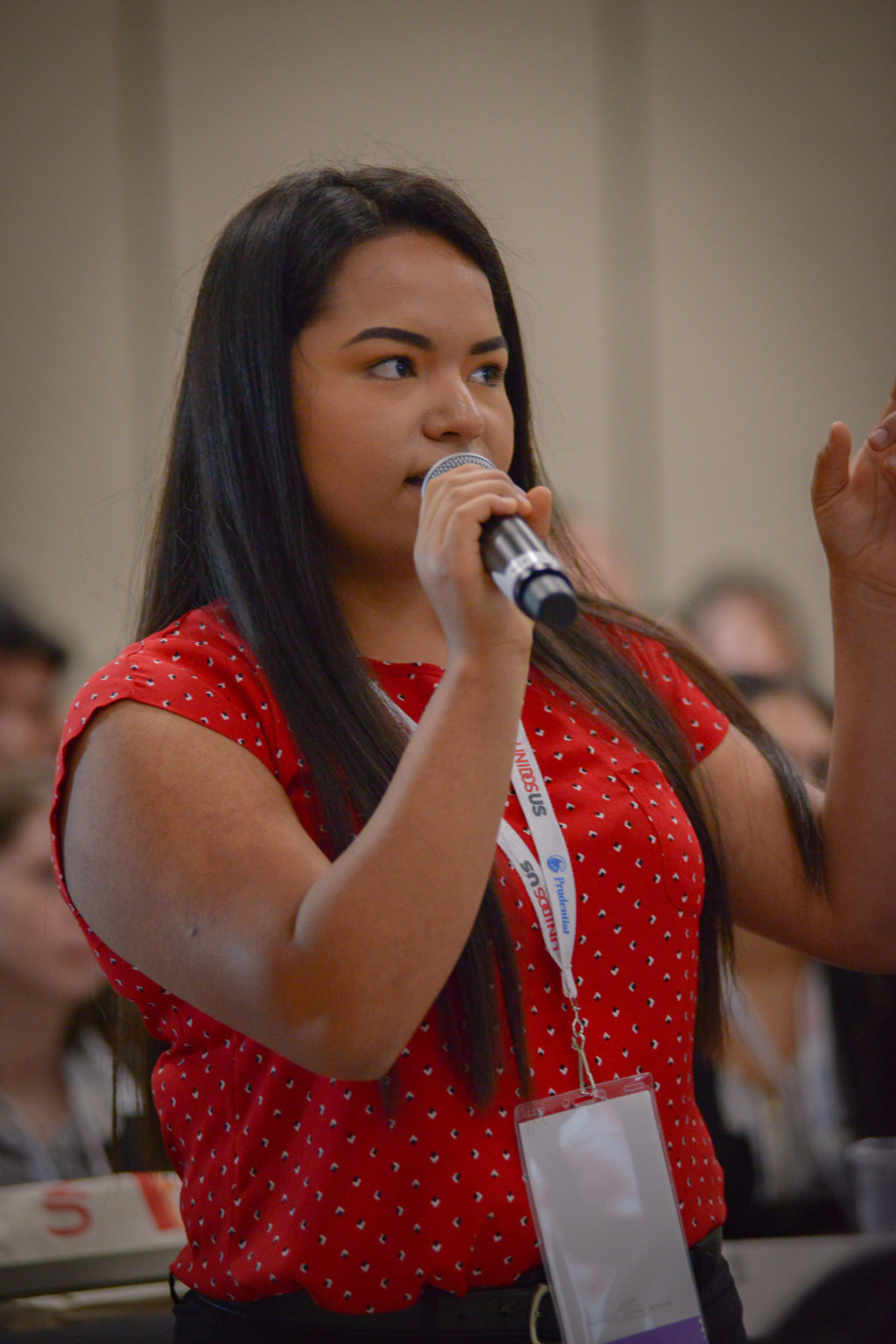Afro-Latinx Líderes Avanzando Fellow Aisaiah Pellecer’s Life Contrasts are Leading Him to an Urban Planning Career
This past year, UnidosUS launched its first-ever Afro-Latinx Líderes Avanzando Fellowship. The program is geared to first-generation students pursuing their undergraduate, graduate, or doctoral degrees and recent college graduates who identify as Afro-Latinx and are passionate about racial equity and making meaningful change in their campus community, workplace, and beyond. ProgressReport.co will be publishing profiles of the participants throughout the spring and summer.
Aisaiah Pellecer, 19, spent his life learning to move between a lot of contrasting experiences. His father is Black from the Midwest, and his mother is Guatemalan, from the predominantly Mayan department of Chimaltenango.
During most of his childhood in Chicago, Pellecer lived in the mostly Latinx neighborhood of Albany Park. As a teenager, he attended a predominantly white high school in Lincoln Park, and upon graduating, he moved to the predominantly Black and Latinx neighborhood of South Chicago
“I started to realize just how different Chicago could be,” says Pellecer, who began writing about segregation and LGBTQ issues for a variety of extracurricular history and social studies fairs.
“I’ve just grown up being in different environments, constantly adapting towards tones and code-switching,” he says.
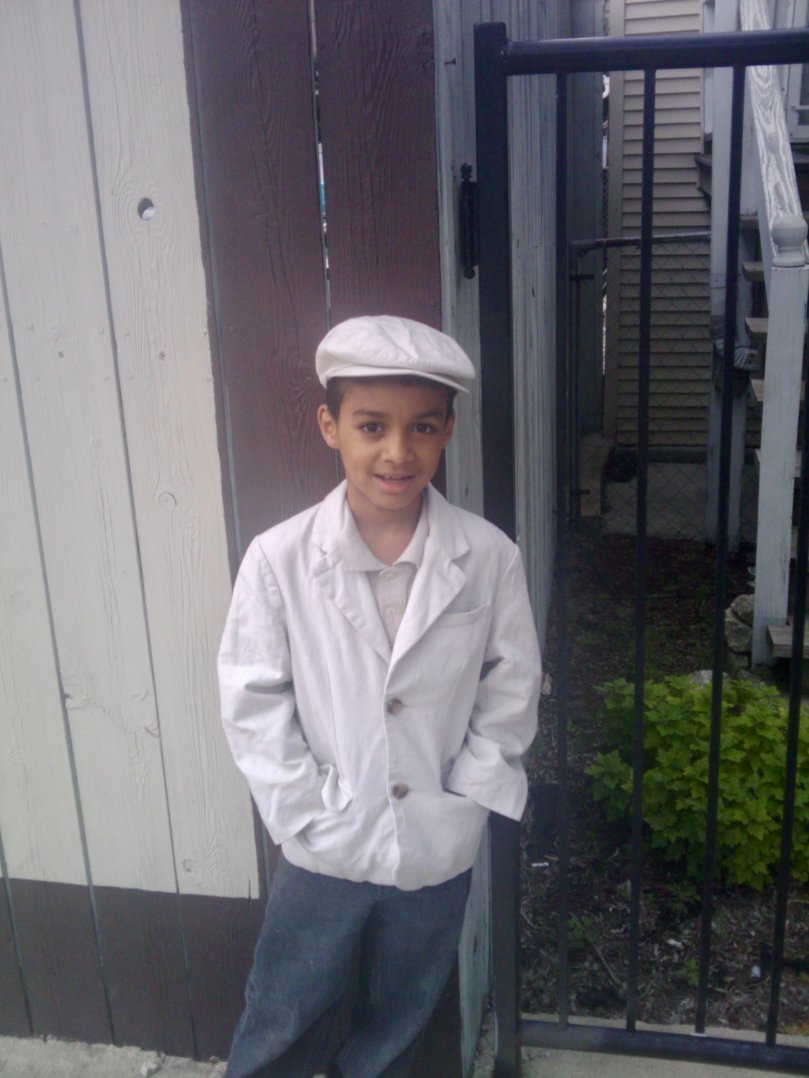
Last fall, he made yet another radical shift, leaving Chicago to study economics in upstate New York at Bard College, an institution with a historically White student body. Pellecer, who is the first in his family to attend college, opted to live in a residence hall made up largely of people who looked like him.
These academic and residential experiences have been instrumental in helping him to consider how he could use his major in economics to promote greater social inclusion in communities across the United States.
“I started to draw those connections between urban planning and economic development,” he says.
Pellecer’s enrollment last fall in the UnidosUS Afro-Latinx Líderes Avanzando Fellowship coincided with this transition. He says it has served as an excellent complement to conceptualizing how planning and development work since it trains students to engage in current policy and advocacy issues.
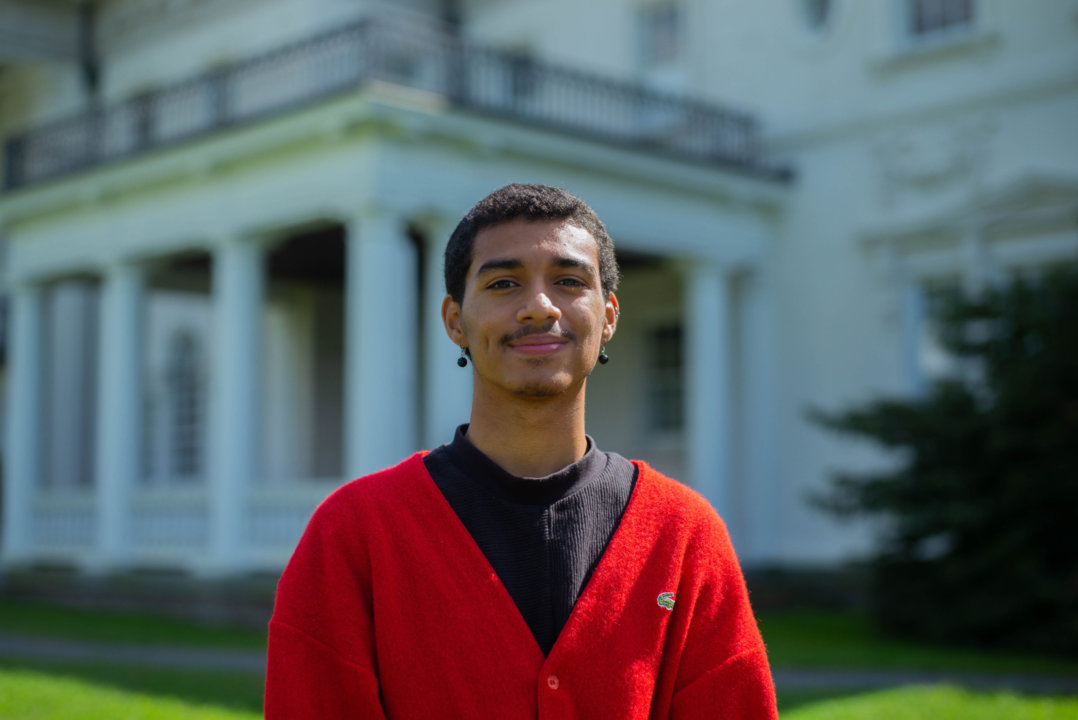
“When I chose economics, I was thinking, ‘okay, I’m going to get a finance job or something in an office where I’m just sitting there crunching numbers.’ But public policy has allowed me to explore economic development through an education lens,” says Pellecer, who is considering careers that merge data analytics with more public-facing policy roles in the community.
During the nine-month UnidosUS program, he and his fellow Líderes participant Gary Enrique Bradley-Lopez developed a policy memo aimed at asking federal and state governments to subsidize community college tuition so that low-income students can earn their associate degrees for free. Even though Pellecer’s higher-ed route is more traditional, he’s learning to appreciate such practices.
“Community college is an engine for social mobility,” he told his Afro-Latinx Líderes cohort and a panel of judges during a presentation at the Afro-Latinx Líderes Avanzando fellows’ first in-person conference in February in Miami. He added, “It is the entry point that we want for everybody.”
At the same time, the fellowship has expanded his pride and feeling of belonging to the unique experiences of being Afro-Latinx, which include being seen and documented in American society, be it through mass media or data collection.
For example, he found himself inspired by his Líderes colleague Jorge Flores, who grew up as one of only a handful of Afro-Latinx students in Mississippi, a place with a very overt history of segregation. And yet, Flores is committed to staying and making that state more inclusive.
“Hearing how passionate he was about Mississippi—the way I am about Chicago—and comparing our passions for our places of origin made me feel recognized,” says Pellecer.
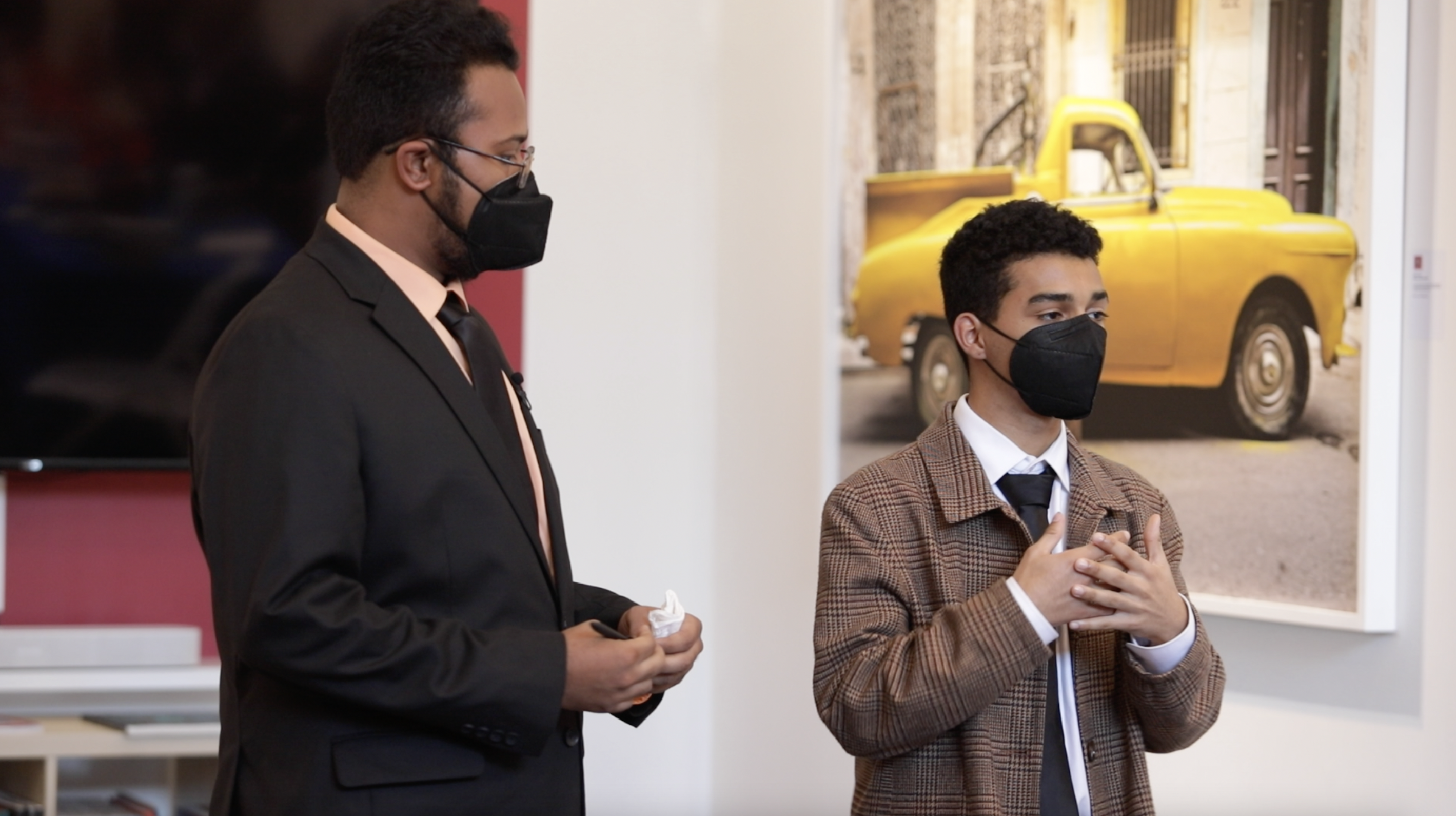
It’s through that recognition he says future leaders like himself will be able to find their own unique voices as members of historically underrepresented populations and as individuals.
“Being in college, I want to make sure I not only get my foot in the door but I’m pushing forward. I’m a first-generation college student, a first-generation American—all those titles, those tropes, are kind of attached to my Afro-Latinx identity,” he says, adding, “I want to show that we are more than that through my work.”
For him, doing that means embracing the whole of who he is without feeling pressured to constantly compromise his culture and norms in professional life.
“I don’t have to change myself to fit a narrative. I don’t have to speak Spanish all the time or English all the time. I can just be myself and know, especially in the community that we’ve cultivated here, that people are going to love me regardless,” he told ProgressReport.co during a break at the February Líderes conference.
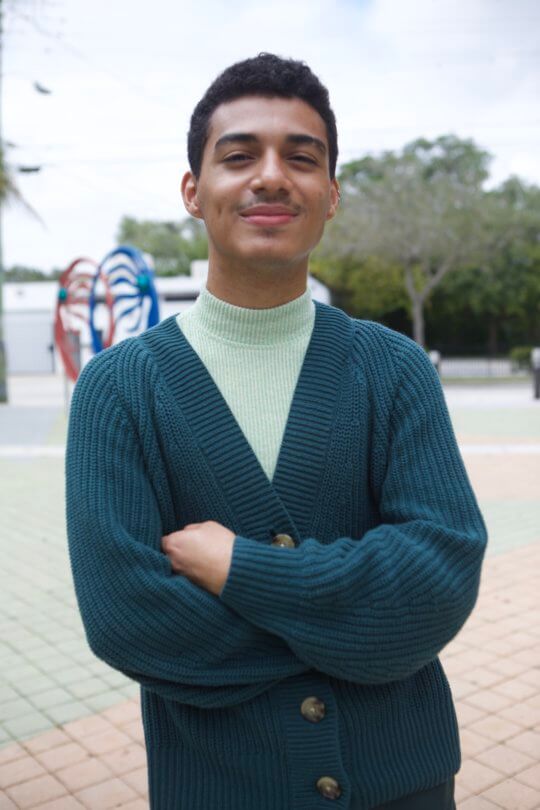
Pellecer knows greater representation for communities of color—most notably Afro-Latinx communities—will take time and effort in policy and advocacy, planning and budgeting, and data collection. But he’s hopeful there are many in the world, be those the fellows in his cohort or students, professors, and mentors, who are inspired and ready for the task.
“It’s the future. I see it in my nieces. They are Black and a quarter Guatemalan but they’re being raised in a Guatemalan household,” he says.
In fact, he appreciates the way his own family teaches them the beauty of all their identities by allowing everyone to be themselves and by switching between speaking in English and Spanish. He’s also hopeful he’ll be a more constant influence starting next fall when he transfers closer to home at the University of Illinois at Urbana-Champagne.
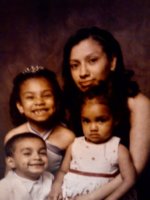
In the meantime, he’s enjoying how the concept of a multicultural family and community is taking shape all over the place.
During the Afro-Latinx Líderes Avanzando fellows’ in-person conference, an event that took place in Miami’s Little Haiti Cultural Complex, he said he felt almost immediately bonded to everyone, describing his awe of it as a feeling of “fluttering.”
It’s the same feeling he got over the winter on the Bard College campus when he and several other Afro-heritage students sat down to watch Encanto on Disney Plus. In that animated film, the Afro-Latina protagonist struggles but ultimately succeeds in finding her own unique magic, reflecting the cooperative values her family and neighbors need to survive and thrive in Colombia. It’s a reflection of the magic Pellecer wants to bring to the communities he will go on to work in, and it was one of the first times he ever saw an Afro-Latinx child recognized and celebrated on the big screen.
“I started to cry. Soon enough everyone will be and will feel seen,” he says.
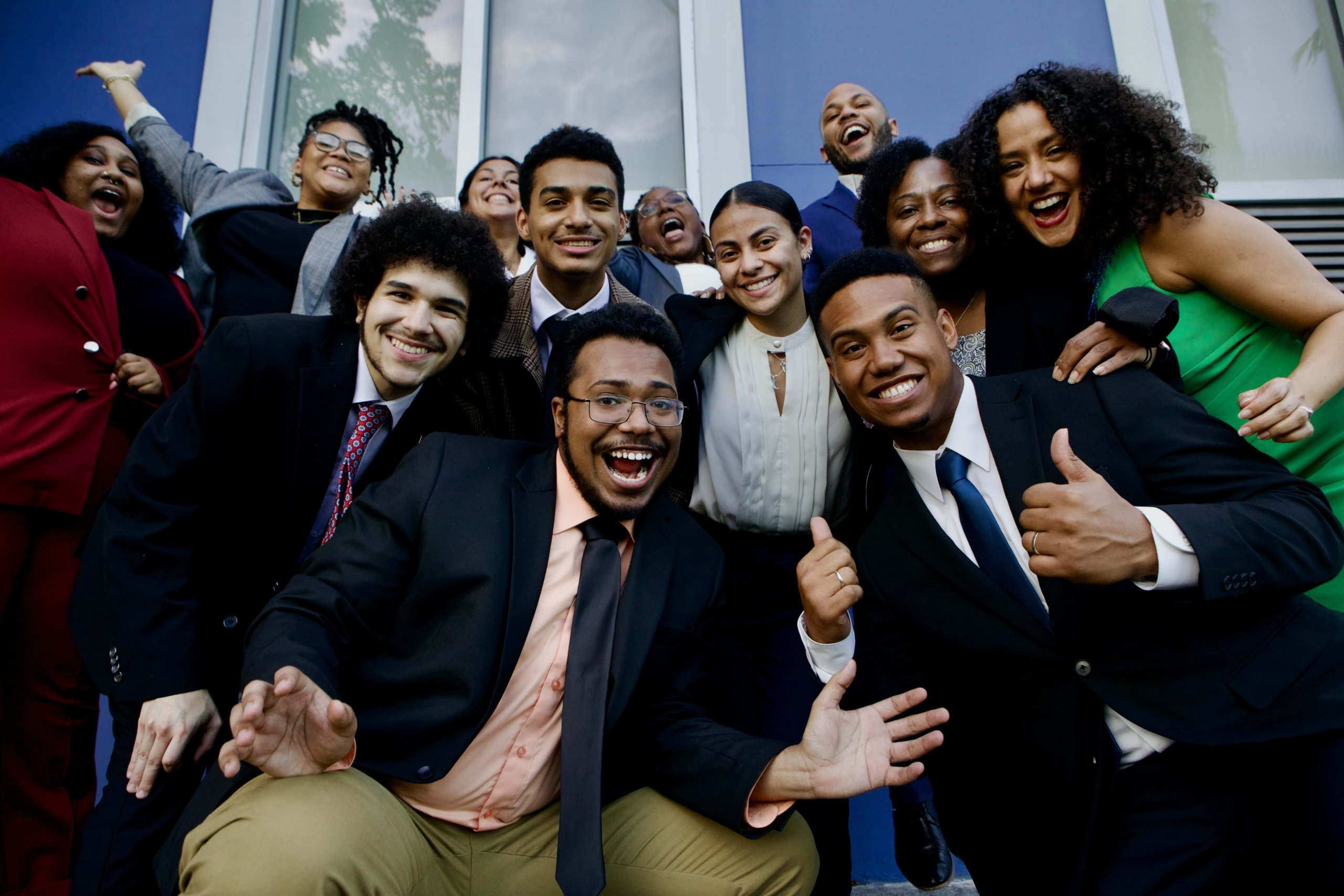
-Author Julienne Gage is an UnidosUS senior web content contributor and the former editor of ProgressReport.co. Gage produced the video alongside videographer Jayme Gershen and video editor Elnatan Melaku Mulugeta.


